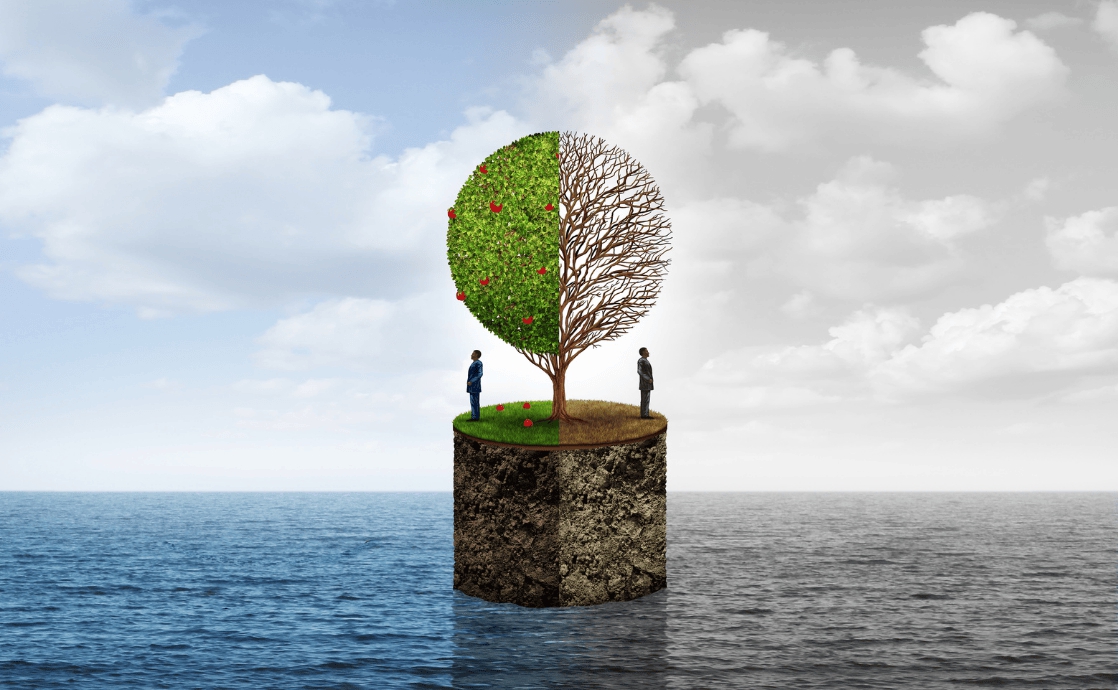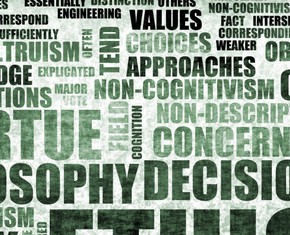The views expressed in our content reflect individual perspectives and do not represent the authoritative views of the Baha'i Faith.
God has created the world as one — the boundaries are marked out by man. God has not divided the lands… That is why Baha’u’llah says: “Let not a man glory in that he loves his country, but that he loves his kind.” All are of one family, one race; all are human beings. – Abdu’l-Baha, Abdu’l-Baha in London, p. 55.
Throughout his new encyclical on poverty and the environment, the Pope weaves together ecological and social concerns:
A sense of deep communion with the rest of nature cannot be real if our hearts lack tenderness, compassion and concern for our fellow human beings…. Concern for the environment thus needs to be joined to a sincere love for our fellow human beings and an unwavering commitment to resolving the problems of society. (§91)
Whether believers or not, we are agreed today that the earth is essentially a shared inheritance, whose fruits are meant to benefit everyone. For believers, this becomes a question of fidelity to the Creator, since God created the world for everyone. Hence every ecological approach needs to incorporate a social perspective which takes into account the fundamental rights of the poor and the underprivileged. The principle of the subordination of private property to the universal destination of goods, and thus the right of everyone to their use, is a golden rule of social conduct…. (§93)
In chapter 3 of Laudato Si’, the Pope explores the human roots of the ecological crisis, with a focus on the dominant technocratic paradigm and the place of human beings and of human action in the world. Here, the Pope’s social conscience is particularly apparent:
We should be particularly indignant at the enormous inequalities in our midst, whereby we continue to tolerate some considering themselves more worthy than others. We fail to see that some are mired in desperate and degrading poverty, with no way out, while others have not the faintest idea of what to do with what they possess, vainly showing off their supposed superiority and leaving behind them so much waste which, if it were the case everywhere, would destroy the planet. In practice, we continue to tolerate that some consider themselves more human than others, as if they had been born with greater rights. (§90)
This focus on the great inequality between people, so strongly asserted in Laudato Si’, clearly echoes the same exact theme in the Baha’i teachings:
A financier with colossal wealth should not exist whilst near him is a poor man in dire necessity. When we see poverty allowed to reach a condition of starvation it is a sure sign that somewhere we shall find tyranny. Men must bestir themselves in this matter, and no longer delay in altering conditions which bring the misery of grinding poverty to a very large number of the people. The rich must give of their abundance, they must soften their hearts and cultivate a compassionate intelligence, taking thought for those sad ones who are suffering from lack of the very necessities of life.
There must be special laws made, dealing with these extremes of riches and of want. The members of the Government should consider the laws of God when they are framing plans for the ruling of the people. The general rights of mankind must be guarded and preserved.
The government of the countries should conform to the Divine Law which gives equal justice to all. This is the only way in which the deplorable superfluity of great wealth and miserable, demoralizing, degrading poverty can be abolished. Not until this is done will the Law of God be obeyed. – Abdu’l-Baha, Paris Talks, pp. 153-154.
By cutting ourselves off from the reality of both nature and spirituality, we fall into the trap of the consumer society. Our excessive anthropocentrism stands in the way of shared understanding and of any effort to strengthen social bonds. “Once the human being declares independence from reality and behaves with absolute dominion, the very foundations of our life begin to crumble.” (§117) We set ourselves at the center, and give absolute priority to immediate convenience, with all else becoming relative. The result? Rampant individualism, with many problems of society connected to today’s self-centered culture of instant gratification. The market tends to promote extreme consumerism in an effort to sell its products, so we easily get caught up in a compulsive consumerism of needless buying and spending. When people become self-centered, their greed increases:
The emptier a person’s heart is, the more he or she needs things to buy, own and consume. It becomes almost impossible to accept the limits imposed by reality…. Obsession with a consumerist lifestyle, above all when few people are capable of maintaining it, can only lead to violence and mutual destruction. (§204)
Our freedom fades when it is handed over to the blind forces of the unconscious, of immediate needs, of self-interest, and of violence. In this sense, we stand naked and exposed in the face of our ever-increasing power, lacking the wherewithal to control it. We have certain superficial mechanisms, but we cannot claim to have a sound ethics, a culture and spirituality genuinely capable of setting limits and teaching clear-minded self-restraint. (§105)
Any society that focuses solely on the material life of humanity, both the Pope and the Baha’i teachings tell us, halts its spiritual progress and ignores the enormously negative impact it has on the Earth itself.
















Comments
Sign in or create an account
Continue with Googleor